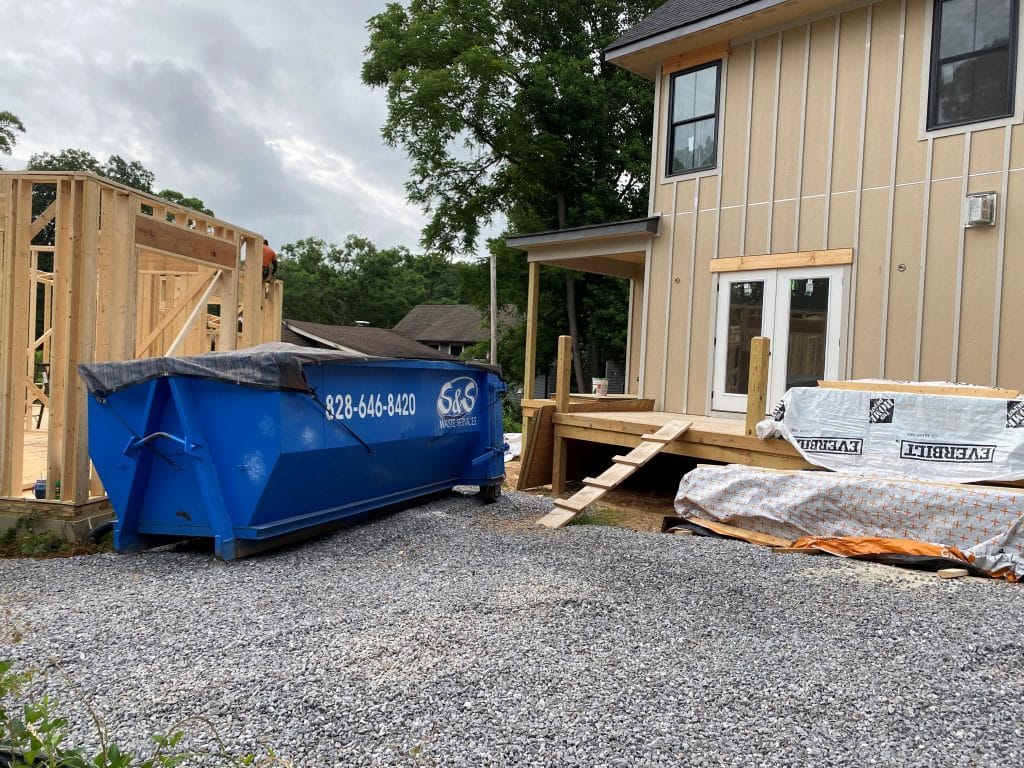Proper waste management is crucial for maintaining a clean and sustainable environment. Whether a homeowner or a business owner, managing waste responsibly is essential to minimize environmental impact and ensure public health and safety. We wanted to discuss the main differences between commercial and residential waste management, shedding light on their unique challenges and providing valuable insights for businesses and individuals.
Scope and Volume of Waste
One of the most significant distinctions between commercial and residential waste management lies in the scope and volume of waste generated. Residential waste primarily originates from households and small-scale activities, while commercial waste arises from businesses, industries, and large-scale operations.
Residential waste is typically more predictable and consistent in volume, consisting of household garbage, recyclables, and yard waste. On the other hand, commercial waste can vary significantly depending on the industry, ranging from paper waste in offices to hazardous materials in manufacturing facilities. Understanding these differences allows waste management companies to develop tailored strategies to handle each waste type effectively.
Regulatory Compliance
Regulatory compliance is another critical aspect that separates commercial and residential waste management. Government regulations regarding waste disposal and recycling often differ between residential and commercial sectors.
Residential waste management is subject to local municipality regulations and waste collection programs. These programs encourage recycling and proper waste segregation to minimize the environmental impact.
Commercial waste, however, must adhere to more stringent regulations due to the potential for hazardous materials and larger volumes. Businesses are often required to obtain special permits for handling certain types of waste and follow specific guidelines to ensure safe disposal.
Collection Frequency and Scheduling
Residential waste collection is usually scheduled regularly, with set pickup days for garbage, recyclables, and yard waste. The collection frequency may vary depending on the community’s needs, but it is generally consistent to maintain cleanliness and avoid potential health hazards.
In contrast, commercial waste collection demands more flexibility. Businesses often generate waste at varying rates, necessitating customizable waste management schedules. Some companies may require daily pickups, while others might opt for weekly or monthly collections, depending on their waste production levels.
Waste Segregation and Recycling
Waste segregation and recycling are crucial in commercial and residential waste management. However, the approach to waste segregation can differ significantly.
Segregation is relatively straightforward for residential waste, with separate containers for general waste, recyclables, and organic materials. Education and awareness campaigns often encourage homeowners to recycle and compost more effectively.
Waste segregation can be more complex in the commercial sector, particularly in industries that produce hazardous or specialized waste. Companies must implement robust recycling programs and train employees to identify and separate various waste streams correctly.
When to Rent a Dumpster
Knowing when to rent a dumpster is essential for homeowners and businesses to manage their waste efficiently. Whether undertaking a home renovation, decluttering your property, or handling a commercial construction project, renting a dumpster can streamline waste disposal and keep your surroundings clean. Let’s explore some common scenarios in which renting a dumpster is a wise decision:
- Home Renovations and Remodeling Projects: Home improvement projects can generate a substantial amount of debris, ranging from old furniture and appliances to construction waste like drywall, lumber, and roofing materials. Instead of relying on regular trash collection services, renting a dumpster for your project allows you to conveniently dispose of large volumes of waste. With a dumpster on-site, you can maintain a safer and more organized workspace, making the cleanup process smoother and more efficient.
- Spring Cleaning and Decluttering: Spring is the perfect time to declutter your home and get rid of items you no longer need. Whether clearing out your basement, attic, or garage or doing a thorough home cleanup, a dumpster rental can be a game-changer. You can easily toss away old furniture, broken appliances, unwanted belongings, and other accumulated clutter. Renting a dumpster for spring cleaning can save you time and effort, allowing you to dispose of everything in one go.
- Moving or Relocating: Moving to a new home or office can be stressful. During the relocation, you may have various items you no longer wish to keep. Renting a dumpster can efficiently dispose of unwanted belongings, damaged furniture, and other things that won’t make the journey to your new location. It simplifies the moving process, ensuring you don’t carry unnecessary items to your new space.
- Special Events and Festivals: Organizing outdoor events or festivals generates a significant amount of waste, including food containers, paper products, and other disposable materials. Renting dumpsters for such occasions allows event organizers to maintain cleanliness throughout the event and ensures proper waste disposal. This environmentally responsible approach demonstrates your commitment to keeping public spaces clean and leaves a positive impression on attendees.
- Commercial Construction and Demolition Projects: For businesses engaged in construction, demolition, or renovation projects, dumpster rentals are a must. These projects produce substantial amounts of debris, such as concrete, bricks, metal, and other construction waste. Having a dumpster on-site simplifies waste management, improves site safety, and enhances overall project efficiency.
Bridging the Gap – Embracing the Nuances of Commercial and Residential Waste Management
Understanding the differences between commercial and residential waste management is essential for developing effective waste disposal strategies. While residential waste management centers on household-generated waste with predictable volumes, commercial waste management involves handling diverse waste streams from businesses and industries.
Both sectors must adhere to specific regulatory guidelines, with businesses facing additional compliance requirements due to the potential for hazardous materials. Furthermore, waste collection frequency and segregation processes differ between the two sectors.
Responsible waste management benefits everyone, safeguarding the environment and promoting sustainability for future generations. Contact us today to discuss your dumpster needs for your project.

